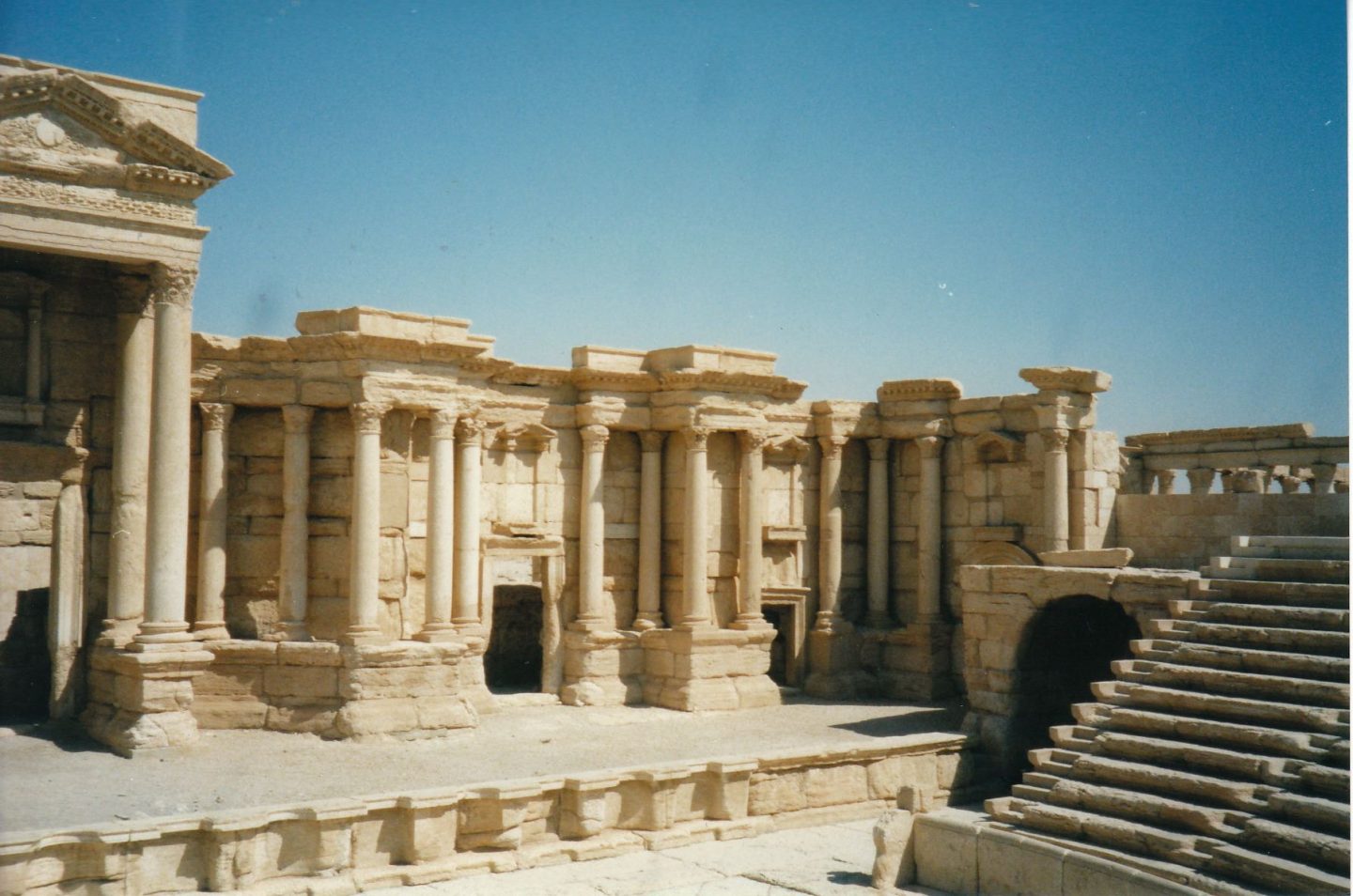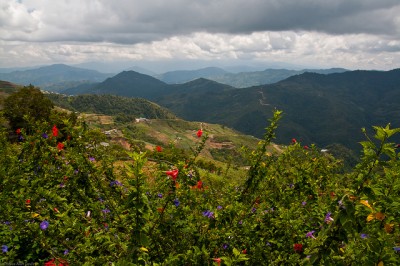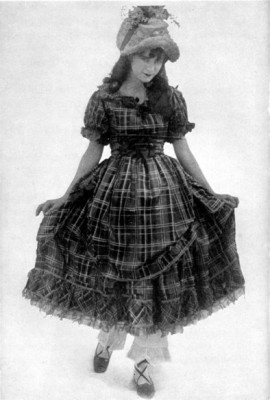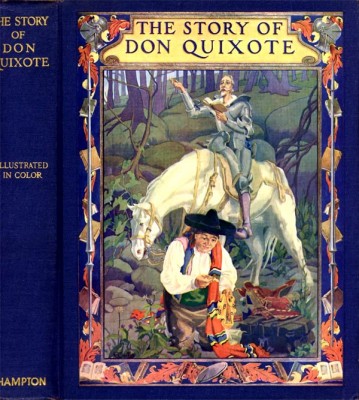The name that can be named is not the eternal name. The nameless is at the beginning of heaven and earth; the named is the mother of all things.
— The Dao De Jing (道德經), said to be written by Laozi (老子), the Old Master
名可名非常名。無名天地之始;有名萬物之母。

Quotations about names
The name that can be named is not the eternal name. The nameless is at the beginning of heaven and earth; the named is the mother of all things.
— The Dao De Jing (道德經), said to be written by Laozi (老子), the Old Master
名可名非常名。無名天地之始;有名萬物之母。

Right up until the destruction of their city [in 146 BC], Carthaginian parents still named their offspring from the same narrow pool as their ancestors had done, based on the names of Phoenician gods….The most famous Carthaginian name of all, Hannibal, means “The Grace of Baal,” while another popular one, Bodaštart, translates into “In the Hands of Astarte” (the Punic goddess of fertility). Names may also have been chosen for more precise meanings, such as the woman Abibaal (“My Father is Baal”), whose mother, Arišut-Ba’al (“Object of Desire of Baal”), may have been a temple prostitute of a priestess at the temple of the god.
—Richard Miles, Carthage Must Be Destroyed: The Rise and Fall of an Ancient Civilization (Viking, New York, 2010), p 18

The Kelabits have official names for their National Identity Cards, but they change their names frequently and are allowed many aliases. A common name change takes place on the birth of a first child. Perhaps the child’s name is Bulan (The Moon, a girl’s name); the father would change his name to Tama Bulan, Father of Moon. Names are also chosen to suit the individual’s mood or situation in life. Young men often select names to project their future aspirations: Balang Nakrau (Tiger Roar), or Bayah Punga (The True Crocodile). In later years people may change their names to sum up their life experiences. Petrus’s grandfather, for example, had lost his favorite son. He had also found a lost patrol of half-starved and dying Japanese soldiers and led them out of the jungle to the safety of Bario, where they could surrender. On this walk he had seen many men fall down and die from exhaustion. Pedera Ulun means Life of Many Sadnesses.
To join in the name changing at an irau [a feast] one is expected to make a contribution. The offering is made earlier, and when everyone is assembled on the longhouse porch, individuals stand up to announce their new names. What is one to think of someone who calls himself Inandiu (A Place to Take a Bath) or Inantudu (A Place to Sit Down)? These two names required some explanation. A Place to Take a bath meant Refresh Yourself in My Company; A Place to Sit Down meant Visitors Are Always Welcome.
The meanings of other names were clear:
Matala Ulun Chose Life
Mulun Balang Live Tiger
Seribu Munung Many Faces
Ta Low (Penan) Short Penis
Do-Eelah Very Clever
Nap-an Aran Hidden Honor
Siron Lemalun Look at Me
Stanley’s father-in-law had one of the best– Mulun Kadangan, Eternal Light. This name had two meanings: ever watchful through the night or sexually active the whole night. Eternal Light was about seventy years old, but he refused to update his name.
—Eric Hansen in Stranger in the Forest: On Foot Across Borneo (1988)
Patsy Clark: Emma, this is Lizbeth.
Emma Greenway Horton: [shakes hands with her] Oh, hi, Elizabeth.
Lizbeth: Hi. It’s Lizbeth.
Emma Greenway Horton: Isn’t that what I said?
Lizbeth: No, you said “Elizabeth” with an e. It’s Lizbeth.
Emma Greenway Horton: Oh, two names? Liz Beth?
Lizbeth: Oh no, one. Lizbeth.
Emma Greenway Horton: Lizbeth?
Lizbeth: Never mind.
The others laugh.
Patsy Clark: And this is Jane.
Emma Greenway Horton: Thank heavens!
—Dialogue from the movie Terms of Endearment (1983)

Such ways as those girls have! Such voices! Such eyes! And such names, too! Names which would not fit at all into a northern setting, relatively so hard and unsentimental, but which, when one becomes accustomed to them, take their place gracefully and harmoniously[Pg 395] in the southern picture. The South likes diminutives and combinations in its women’s names. Its Harriets, Franceses, Sarahs, and Marthas, become Hatties, Fannies, Sallies and Patsies, and Patsy sometimes undergoes a further transition and becomes Passie. Moreover, where these diminutives have been passed down for several generations in a family, their origin is sometimes lost sight of, and the diminutive becomes the actual baptismal name. In one family of my acquaintance, for example, the name Passie has long been handed down from mother to daughter. The original great-grandmother Passie was christened Martha but was at first called Patsy; then, because her black mammy was also named Patsy, the daughter of the house came to be known, for purposes of differentiation, as Passie, and when she married and had a daughter of her own, the child was christened Passie. In this family the name May has more recently been adopted as a middle name, and it is customary for familiars of the youngest Passie, to address her not merely as Passie, but as Passie-May. The inclusion of the second name, in this fashion, is another custom not uncommon in the South. In Atlanta alone I heard of ladies habitually referred to as Anna-Laura, Hattie-May, Lollie-Belle, Sally-Maud, Nora-Belle, Mattie-Sue, Emma-Belle, Lottie-Belle, Susie-May, Lula-Belle, Sallie-Fannie, Hattie-Fannie, Lou-Ellen, Allie-Lou, Clara-Belle, Mary-Ella, and Hattie-Belle. Another young lady was known to her friends as Jennie-D.
—Julian Street, speaking of Georgia girls in the early 1900s, in American Adventures: A Second Trip “Abroad at Home“ (1916), ch. 18
I myself have an unbearably vulgar name, am well aware of the fact, and have no plans to change it. But I remain extremely interested in people’s names.
To give someone a name is a simple and small-scale act of creation. When the patriarch of days gone by would sit in winter with his feet propped up on a foot-warming brazier, smoking a water-pipe, and pick out a name for a newly arrived grandson, his word was all. If the boy was called Guang-mei (Brighten the Threshold), he would end up doing his best to redound honor on the gates of the family house. If he was called Zhuyin (Ancestral Privilege) or Chengzu (Indebted to the Ancestor), he would be compelled always to remember his forebears. If he was called Hesheng (Lotus Born), his life would take on something of the coloring of a pond in June. Characters in novels aside, there aren’t many people whose names adequately describe what they are like in reality (and often the opposite is the case and the name represents something they need or lack– nine of ten poor people have names like Jingui [Gold Precious], Ah Fu [Richie], Dayou [Have a Lot]). But no matter how or in what manner, names inevitably become entangled with appearance and character in the process of creating a complete impression of a person. And this is why naming is a kind of creation.
I would like to give someone a name, even though I’ve yet to have the opportunity to do so….
—Chinese novelist Eileen Chang (1920-1995) in her essay “What is essential is that names be right” from Written on Water (2005), translated from her book Liuyan (1968) by Andrew F. Jones. The essays were written in wartime Shanghai. The title refers to a famous quotation of Confucius.
Thank you to Nick who found the Chinese (below).
我自己有一个恶俗不堪的名字,明知其俗而不打算换一个,可是我对于人名实在是非常感到兴趣的。
为人取名字是一种轻便的,小规模的创造。旧时代的祖父,冬天两脚搁在脚炉上,吸着水烟,为新添的孙儿取名字,叫他什么他就是什么。叫他光楣,他就是努力光大门楣;叫他祖荫,叫他承祖,他就得常常记起祖父;叫他荷生,他的命里就多了一点六月的池塘的颜色。除了小说里的人,很少有人是名副其实的,(往往适得其反,名字代表一种需要,一种缺乏。穷人十有九个叫金贵,阿富,大有。)但是无论如何,名字是与一个人的外貌品性打成一片,造成整个的印象的。因此取名是一种创造。
我喜欢替人取名字,虽然我还没有机会实行过。。。
One of the most bizarre demonstrations of the like-o-meter in action comes from the work of Brett Pelham, who has discovered that one’s like-o-meter is triggered by one’s own name. Whenever you see or hear a word that resembles your name, a little flash of pleasure biases you toward thinking the thing is good. So when a man named Dennis is considering a career, he ponders the possibilities: “Lawyer, doctor, banker, dentist… dentist… something about dentist just feels right.” And, in fact, people named Dennis or Denise are slightly more likely than people with other names to become dentists. Men named Lawrence and women named Laurie are more likely to become lawyers. Louis and Louise are more likely to move to Louisiana or St. Louis, and George and Georgina are more likely to move to Georgia. The own-name preference even shows up in marriage records: People are slightly more likely to marry people whose names sound like their own, even if the similarity is just sharing a first initial. When Pelham presented his findings to my academic department, I was shocked to realize that most of the married people in the room illustrated his claim: Jerry and Judy, Brian and Bethany, and the winners were me, Jon, and my wife, Jayne.
The unsettling implications of Pelham’s work is that the three biggest decisions most of us make– what to do with our lives, where to live, and whom to marry– can all be influenced (even if only slightly) by something as trivial as the sound of a name.
—Jonathan Haidt in The Happiness Hypothesis: Finding Modern Truth in Ancient Wisdom (2006)
I was nine when Dad pointed to a small plant at the front of the Battlement Border and said the words “Alchemilla mollis.” I’d heard him use botanical names before but this was the first time he’d yoked the strange words so deliberately to a thing. He got me to say the words after him: Alchemilla mollis. At first I couldn’t get them right. The words knotted and snarled in my mouth; we had to work through them syllable by syllable, the names a technique my lips and tongue needed to master by practice. But as soon as I said them once, it was easy. Alchemilla mollis. Alchemilla mollis. I looked down at the plant, leaf rims crimped in pleats, the small yellow-green flowers, and said the plant’s own name back to it as if in greeting. The words slid fluently, a musical pleasure in that procession of l’s and m’s, the see-saw rhythm of Alchemilla mollis. As soon as I had its name in my head I started to notice the plant all over the garden: at the front of borders, seeded in cracks between flagstones. The name was a kind of recognition. Now Alchemilla mollis stood out from other, anonymous plants.
—William Fiennes, The Music Room (2009)
Choosing A Name
I have got a new-born sister;
I was nigh the first that kissed her.
When the nursing woman brought her
to papa, his infant daughter,
how papa’s dear eyes did glisten!-
She will shortly be to christen:
and papa has made the offer,
I shall have the naming of her.
Now I wonder what would please her,
Charlotte, Julia, or Louisa.
Ann and Mary, they’re too common;
Joan’s too formal for a woman;
Jane’s a prettier name beside;
but we had a Jane that died.
They would say, if ’twas Rebecca,
that she was a little Quaker.
Edith’s pretty, but that looks
Better in old English books;
Ellen’s left off long ago;
Blanche is out of fashion now.
None that I have named as yet
are so good as Margaret.
Emily is neat and fine.
What do you think of Caroline?
How I’m puzzled and perplext
what to choose or think of next!
I am in a little fever.
Lest the name that I shall give her
should disgrace her or defame her,
I will leave papa to name her.
—Charles Lamb (1775-1834)

Not long ago, in a place in La Mancha whose name I do not want to remember, there lived a nobleman who was one of those who kept a lance in a rack, an ancient shield, a skinny nag, and a racing greyhound.
—Miguel de Cervantes (1547-1616), in Don Quixote: the famous first lines of the book. A nobleman who did not keep a horse and a lance was no longer considered a nobleman.
En un lugar de la Mancha, de cuyo nombre no quiero acordarme, no hace mucho tiempo que vivía un hidalgo de los de lanza en astillero, adarga antigua, rocín flaco y galgo corredor.